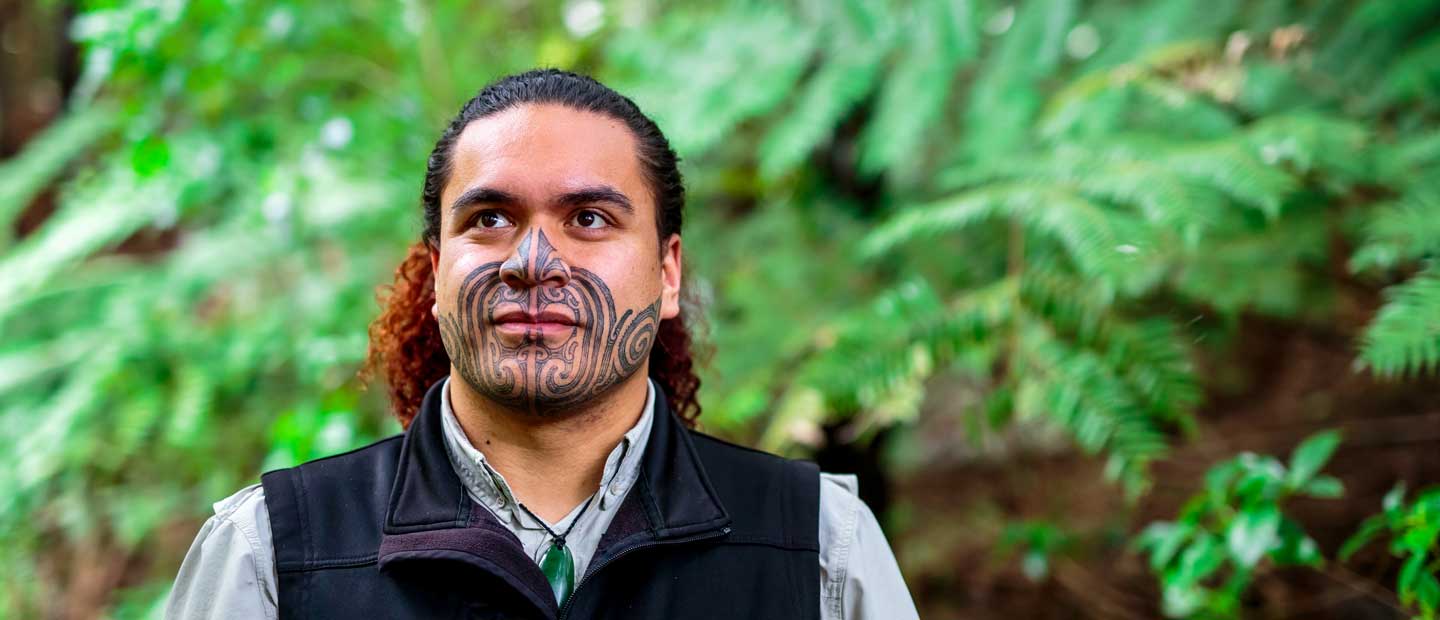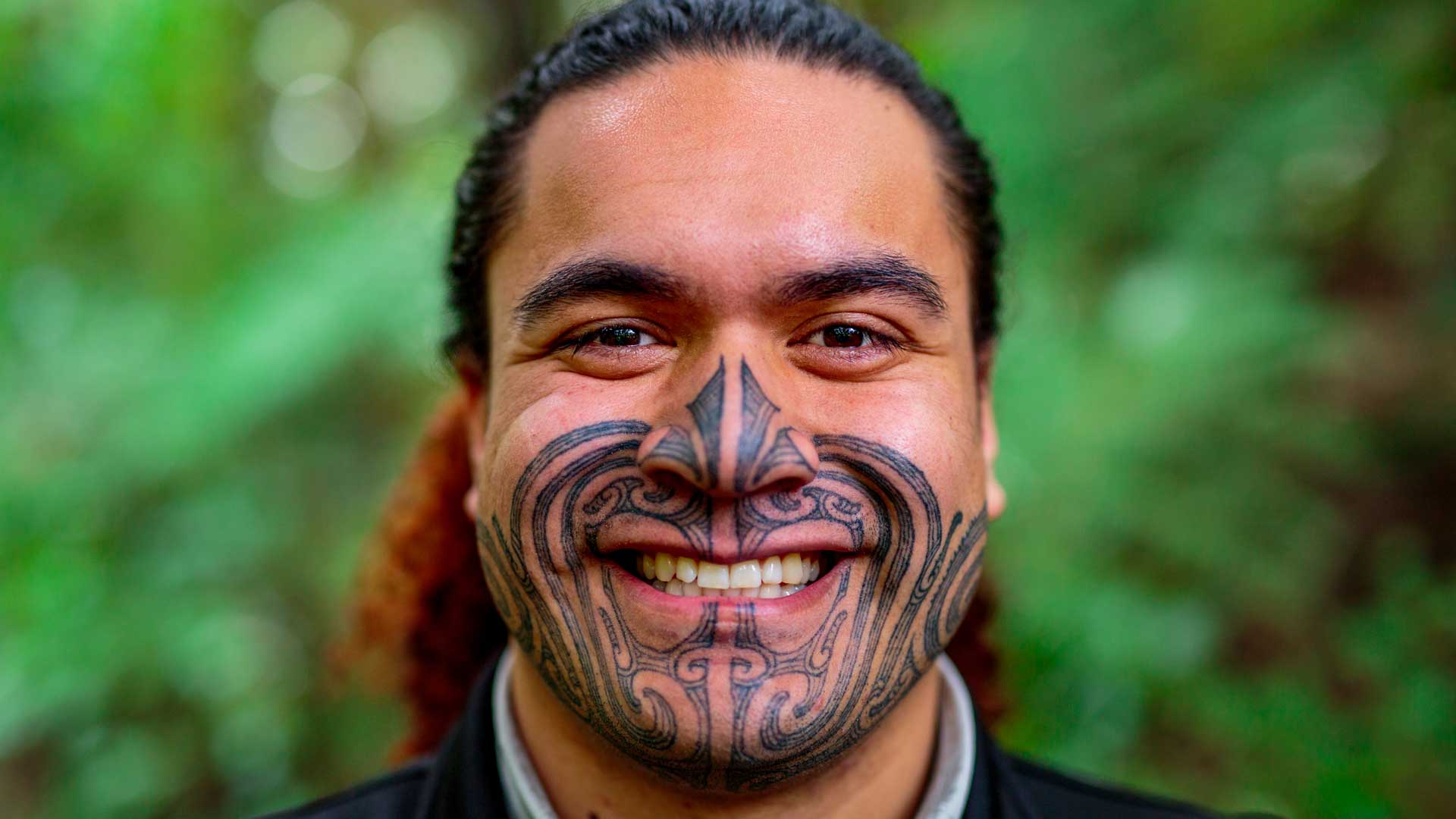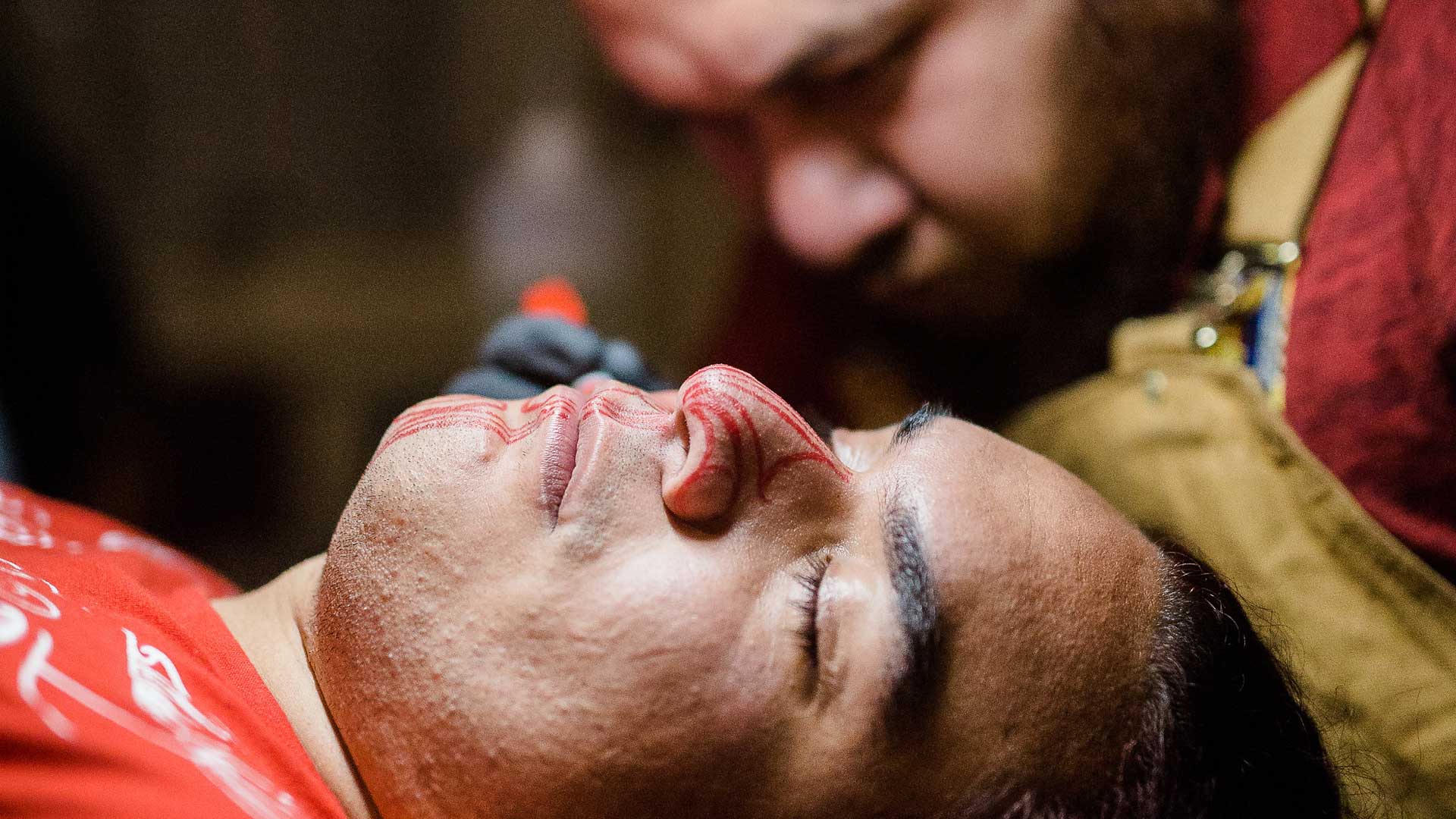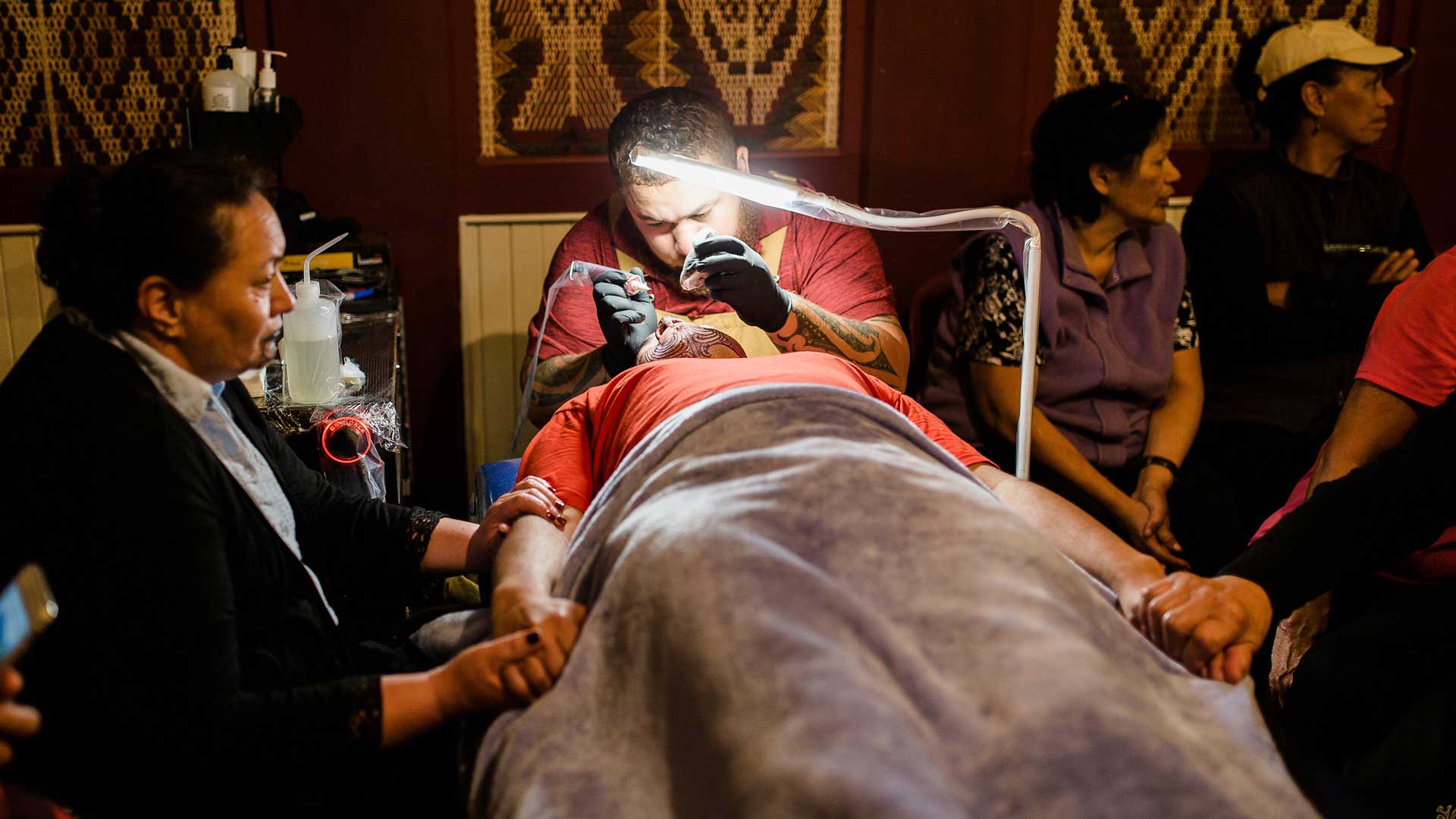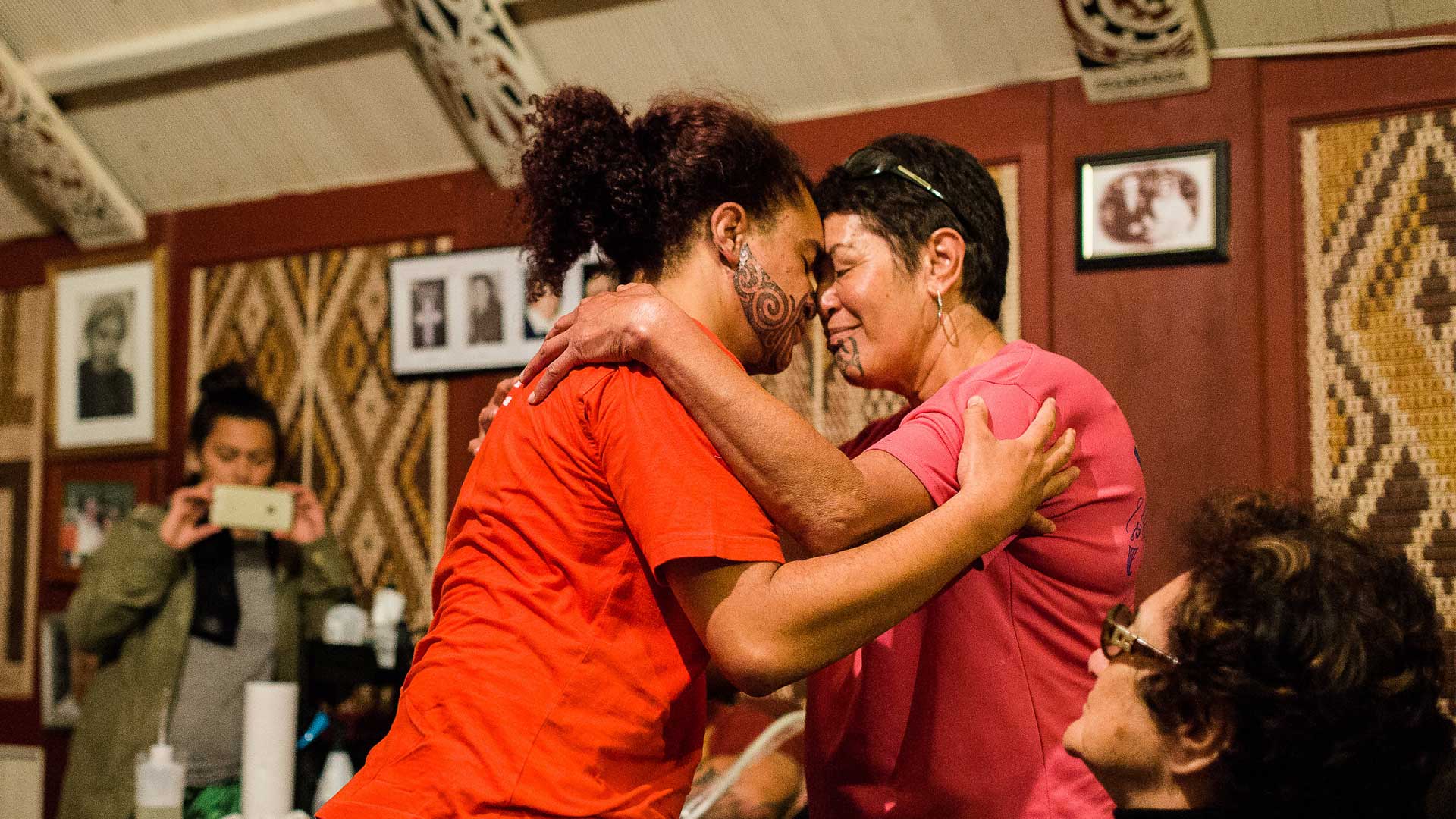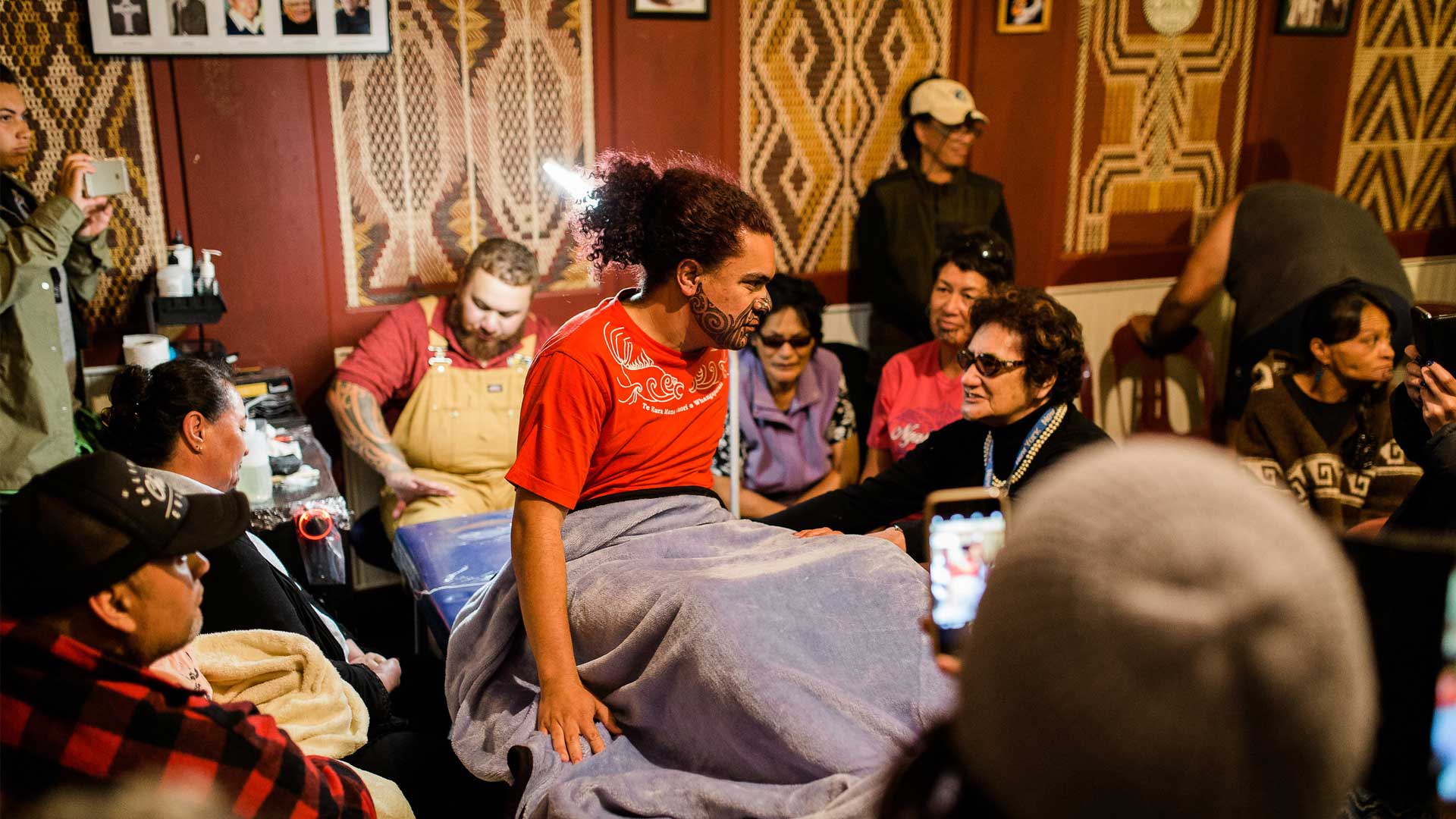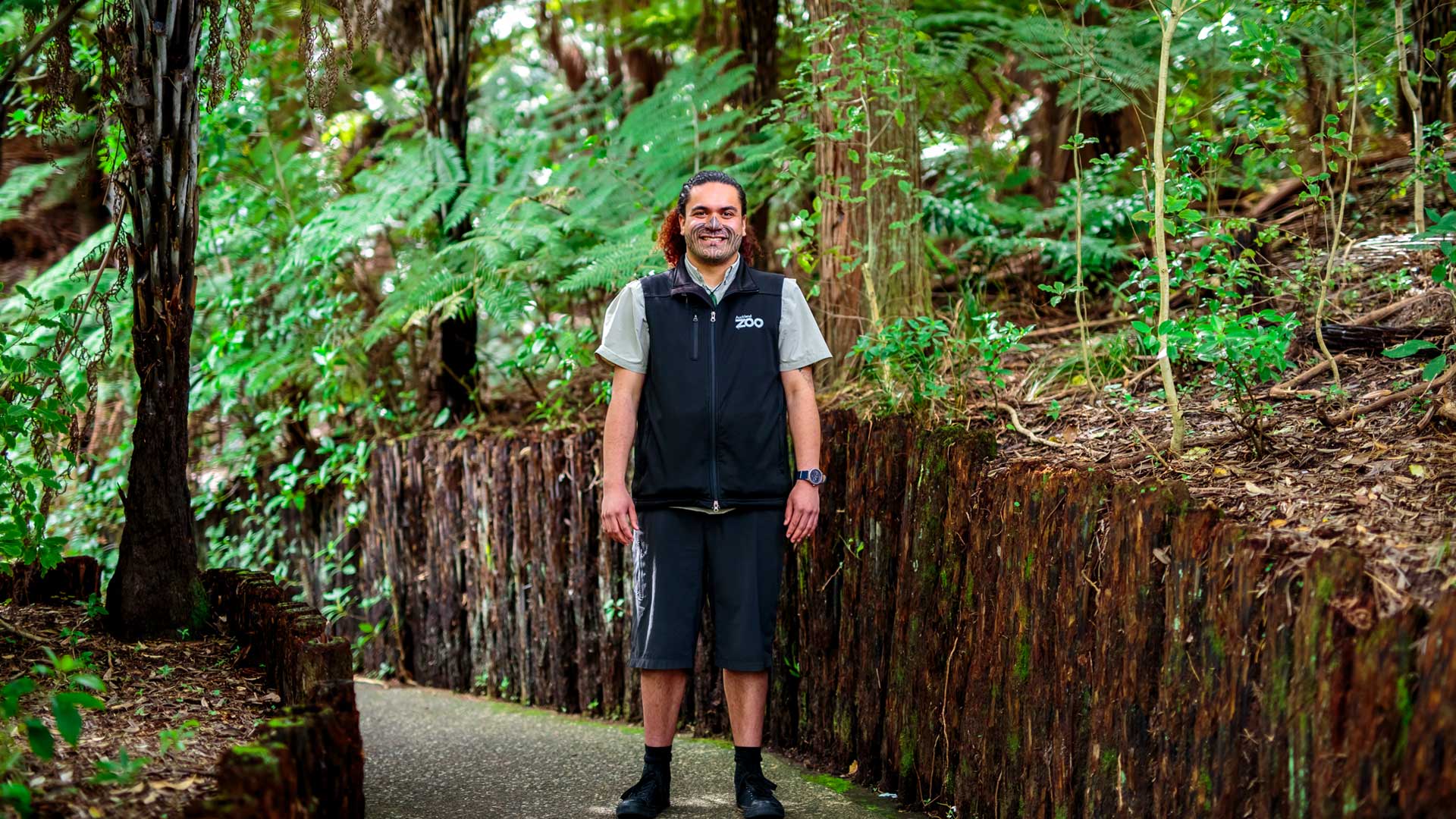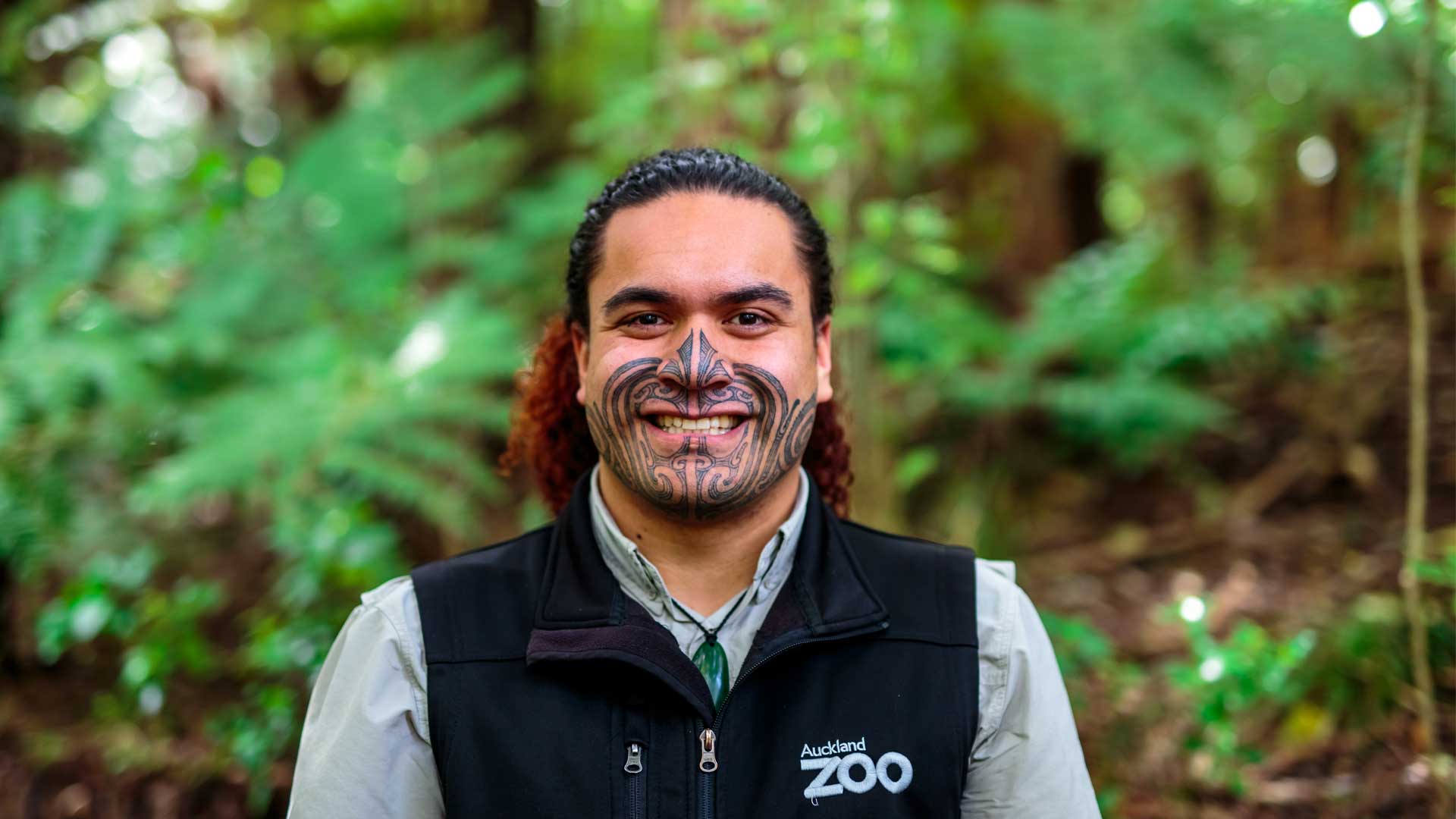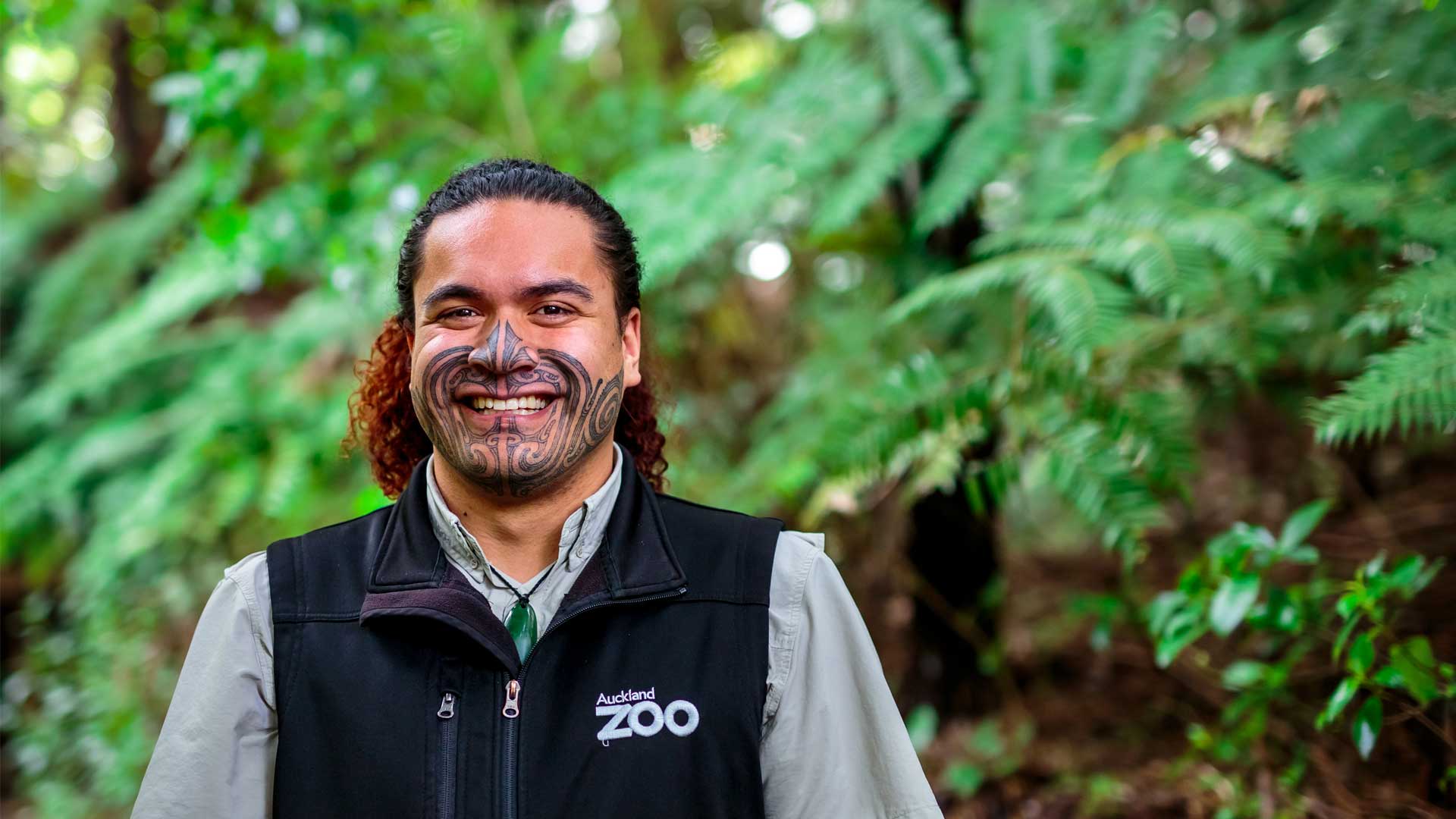World Famous in Auckland, you may recognise Hōhepa Waenga from Auckland Zoo’s Māori Word of the Week videos, which aim to educate and inspire New Zealanders to engage in te reo. Although, not usually one to talk about himself, Hōhepa was quick to take up an opportunity to discuss his own journey of learning the language, his heritage, and the story behind his moko mataora, hoping to encourage others to find their own te reo path in Te Wiki o Te Reo Māori – Māori Language Week.
With whānau in Te Tai Rāwhiti East Coast (Te Whānau a Apanui, Ngāti Porou), and Taupō-nui-a-Tia (Ngāti Tūwharetoa, Ngāti Raukawa ki te Tonga), but also ancestors from the Cook Islands (Araura Enua / Aitutaki), Germany and England (Yorkshire), Hōhepa strongly believes in embracing all parts of who you are. With an English great, great grandmother who moved to Aotearoa to be a teacher, and five direct relatives who also chose the teaching path, Hōhepa always thought he would end up in education. Going against the tide, he chose the path less taken – the study of conservation.
Beginning at Auckland Zoo as a volunteer in 2011, Hōhepa embraced being part of a not-for-profit conservation organisation, and decided to study to become a ranger. The skills gained were invaluable – firefighting, quad biking, fencing, toxin education for pest and weed control, and even igloo building skills, to name a few. After a three-month placement in Te Urewera, Auckland Zoo’s Outreach Manager needed an educator in Tīkapa Moana (Hauraki Gulf), teaching school groups about conservation, particularly on the predator-free islands. Hōhepa was the perfect fit for the challenging role.
Call it luck, skill, grit or passion, but these fateful decisions, hard work, and the right balance of expertise (and possibly even some genetics), lead Hōhepa into the roles of Zoo Educator and Volunteer Coordinator at Te Whare Kararehe o Tāmaki-Makaurau, and as he explains, this is what his fascinating moko is all about.
Video
Join us for Te wiki o te reo māori - Māori Language Week
Today Hohepa is teaching us how to say Auckland Zoo in te reo – Te Whare Kararehe o Tāmaki Makaurau!
“My moko is exactly me at the time I decided to get it two years ago, it tells my story,” Hōhepa said.
Hōhepa explains for a male, a moko tells the story of how one contributes to their community, so his designs are specific to working in conservation and education. The design also incorporates his status within his whānau, and his marae (Kauaetangohia). Each iwi and hapū has different prerequisites to be a wearer, in Te Tai Rāwhiti East Coast this means being Māori and contributing to the community. Hōhepa didn’t expect to get a moko for another 10 years, he felt he needed to be fluent in te reo, more successful, and importantly have his grandmother’s blessing.
“I unexpectedly got my conservative grandmother’s blessing, but it was still my own personal growth holding me back. But then my cousin said why don’t you just grow with it, learn te reo with your moko. Nobody’s perfect but it’s not about that, it’s something that should be living and breathing with you throughout your journey.”
Hōhepa decided there were more reasons to get a moko than not, a main reason being that some think it should be relegated to the history books. He wanted to be part of normalising it and bringing this meaningful artform back into the mainstream. Hōhepa also explains that a moko should be seen, and working at Auckland Zoo was a place that he would be seen, all over the world on social media, and by zoo visitors local and international alike.
Whakatauki (Proverb)Tōku reo tōku ohooho, tōku reo tōku māpihi maurea - My language is my awakening, my language is my object of affection, my treasure.
“People would always ask me where I’m from – it’s all about identity. The other thing was its history. The idea is to be like that of Rarohenga which is the underworld, and for us the underworld is peace, a place of positivity and goodness, so when you get a moko you are shifting into a different frame of mind – to be more open and empathetic.”
The process itself took place at his marae (Kauaetangohia), Hōhepa describes it as being packed with around 60 people to sing and support his journey. Although he went last in a group of 17 people, and his moko wasn’t finished until close to midnight, the support never waned, and the occasion was completed with a big haka, Rūaumoko. Hōhepa describes it as a very emotional and significant moment.
Hōhepa was born around the time of Te Kōhanga Reo movement, which began to once again normalise the use of te reo. Unfortunately, his parent’s generation were deprived of their language growing up, so it wasn’t something used in fluency in his household. Hōhepa began his own journey to become fluent in te reo, and would still like to become more confident. Teaching himself is difficult, because the dialect changes in different parts of the country, so to become fluent in his home town of Cape Runaway, he first has to unlearn the dialect of words he learnt in Auckland.
“When you have conversations in English it flows, you can add in your slang without even thinking about it. I’m at the stage of te reo where it’s all grammatically correct, but it’s not how you would actually conversate at all. I’m trying to get myself immersed in the natural feel of a conversation in te reo, not a systematic one.”
Hōhepa believes it’s important to make sure all Kiwi kids get the opportunity to learn the language, to understand Aotearoa a bit more as so many places are named in te reo, and more and more children are given te reo names. Hōhepa gives the perfect example – Rotorua. ‘Roto’ means lake, ‘Rua’ means two. If you change the pronunciation you change the meaning.
For Te Wiki o Te Reo Māori Hōhepa would like to inspire people to make a change and continue their own te reo journey, no matter what stage they are at.
“There are so many ways to get started on your path. Find a Māori space to practice, watch Māori TV, watch a documentary about the culture itself. Sign up to a free night class. I think people should just try their hardest and not worry about the backlash. I know that everyone like myself is on their own learning journey of te reo. Practice whenever and wherever you can.”
"Tōku reo tōku ohooho, tōku reo tōku māpihi maurea - My language is my awakening, my language is my object of affection, my treasure" – Whakatauki (Proverb).


